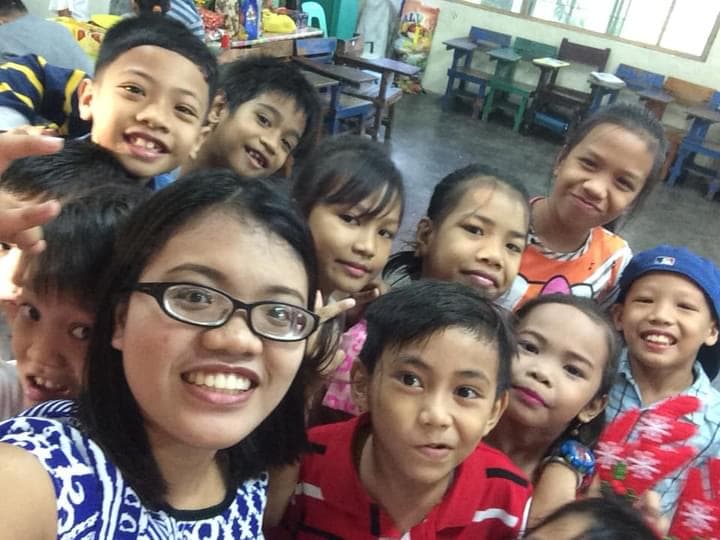The Fellowship Program of Teach for the Philippines is an experience of self-discovery and leadership. We start by acknowledging that there is a wicked problem of inequity in education in the country. This means that not all children, despite existing government and non-government efforts to support it, have access to relevant and quality education. Consequently, poverty and all other social problems are also very prevalent in the country.
Knowing that access to education is inequitable in the country, the Fellowship challenged us on how we can help address the existing gap. This is where I realized that we as young people can be teachers no matter where we are in the country or what our educational background is because our passion and energy in serving the nation is channeled through our teaching in public schools.
I did not major in Education during college, but my respect for the teaching profession is high because it influences generations of young people. Teachers play a significant role in opening up a world of possibilities for their students despite many challenges. In the long run, nurturing the students’ passion for learning brings hope for the country.
Teachers are leaders inside the classroom. Accepting the responsibility of being a teacher is also becoming a leader who develops a deeper understanding of the underlying realities of our learners who are the microcosm of our society. Our willingness to understand and listen to our students will also allow and guide us in taking the next steps to help them better.
Discovering a dreamer after a class disruption
I had this experience with one of my students in grade three, which reminded me of how being a teacher inside the classroom can make a big difference. One day while we were having our learning activity, one of my students started to cry while the others were busy with their tasks. I went to my student who was crying frantically, calmed her down, and asked her what happened. She and her seatmates pointed to another student who was known to be very rowdy in class. He kept denying his misbehavior and instead continued to tease his classmate. I invited him outside the classroom and talked to him in private.
Upon talking to him, I not only discovered the reason why he bullied his classmate but also what he and his family experienced at home. They live in a ‘kariton’ on the streets, and sometimes he would wake up with a swollen eye because a random stranger punched him while he was asleep. His situation at home exposed him to violence and poverty. He said that he felt hurt every time he experienced being bullied in the streets where they live. He acknowledged that bullying is not right and he too does not want to experience being bullied or hurt for no reason. After our short talk, he cried and apologized to his classmate and promised that he will not hurt her again. I told him that as his teacher, I believe and trust that he would always choose to do the right thing and tell me first if someone was misbehaving or bothering them in class. Months passed and every time I taught in their class, he would proudly remind me that he never bullied his classmate again. He also shared with me that he dreams of becoming a policeman someday to protect innocent people. I learned that students participate and perform well in class when they feel that you value them and you care for them.
As a teacher, we always seek to understand our students, believe in them, and facilitate their learning competently despite all the challenges. Our role in the classroom is to see the potential of our students and to nurture it. As a teacher, we know that our actions and decisions have a significant impact on children’s education. Our best self in the classroom creates the best students.
Even though I wasn’t an Education major, I discovered that there are many ways for me to improve my teaching pedagogy for my students. The Fellowship Program equipped me and my co-Fellows with substantial classroom strategies, tools, and good practices through the help of young leaders and mentors who have come before us. Our reward as teachers is to see our students develop the love for learning and believe in their dreams.
Towards the end of my Fellowship journey, my co-teachers adopted some of my classroom management routines and strategies. Our school group was also able to conduct a workshop on Anti-Bullying and Positive Discipline workshops for students, teachers, and parents. For two years as a Teacher Fellow, my students inspired me to improve myself and to do my best in the work that I do to help others; wherever I go, I bring with me the advocacy for education equity in the country.
Alumni Ambassadorship Journey: Witnessing how local governments can be strong education partners
After teaching in the classroom, I chose to join TFP’s Alumni Ambassadorship Program where I saw and experienced how different sectors in our society contribute to the improvement of our education system. Working as a technical assistant under the Policy and Legislation Unit of the League of the Cities of the Philippines helped me understand the role of the local governments in providing basic education. My engagement with different government agencies and private organizations enabled me to see how our government leaders and decision-makers decide for our children’s education. It is hard to meet all the educational needs of a child through one sector alone. The best way to do so is to encourage all other sectors to come together to support our children’s education, such as creating stronger partnerships between the national government agencies like the Department of Education and the local governments.
In the Alumni Ambassadorship Program, I experienced the significance of dialogue between different sectors to adopt new policies and programs, and to finetune their roles and efforts for the learning continuity of students in the time of the pandemic. I am grateful because the League of Cities of the Philippines engaged me in one of their projects related to education. Given my teaching background, I was also consulted to provide insights on how local governments can further support the teachers and schools as they adopt alternative learning delivery modes.
I am grateful for my three-year journey with Teach for the Philippines that enabled me to discover more about what I can do for other people and for the country. It helped me conquer my fears and hesitations to become a better person, and to always choose to extend myself to others especially in helping the education sector in the best way I can, together with the growing network of education advocates in the Philippines.
Mel de Guia is part of the 2017 Cohort, and completed her 2-year Fellowship commitment in 2019. She taught for two years at Cubao Elementary School in Cubao, Quezon City. Post-Fellowship, she joined the Alumni Ambassadorship Program as part of the League of the Cities of the Philippines.


